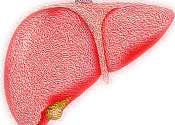Scientists discover a new signaling pathway and design a novel drug for liver fibrosis
A healthy liver filters all the blood in your body, breaks down toxins and digests fats. It produces collagen to repair damaged cells when the liver is injured. However, a liver can produce too much collagen when an excess ...
13 hours ago
0
34









